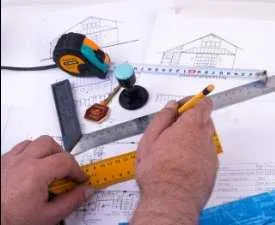Description
Diploma in Robotics (Arduino)
Duration: 6–12 months (depending on institution)
Eligibility: High school diploma or basic knowledge of electronics/programming (recommended)
Course Objectives
-
Introduce the fundamentals of robotics, electronics, and programming.
-
Develop skills to design, build, and program Arduino-based robots.
-
Explore sensors, actuators, and wireless control systems.
-
Enable troubleshooting and prototyping of robotic systems.
-
Prepare students for careers in automation, IoT, and embedded systems.
Course Modules
1. Introduction to Robotics & Arduino
-
Basics of robotics and its applications
-
Overview of Arduino (board types, IDE, and ecosystem)
-
Setting up the Arduino environment (software/hardware)
2. Electronics Fundamentals
-
Basic components (resistors, capacitors, transistors, etc.)
-
Circuit design and prototyping (breadboard, soldering)
-
Power supply and motor drivers (L298N, L293D)
3. Arduino Programming
-
C/C++ basics for Arduino
-
Digital vs. analog I/O (LEDs, buttons, PWM)
-
Serial communication (UART, I2C, SPI)
4. Sensors & Actuators
-
Working with sensors (ultrasonic, IR, temperature, gyroscope)
-
Motor control (DC, servo, stepper)
-
Interfacing actuators (relays, solenoids)
5. Robotics Kinematics & Mechanics
-
Basic mechanics (wheels, chassis, grippers)
-
Robot locomotion (differential drive, line-following)
-
3D printing/laser cutting for robotics (optional)
6. Wireless Control & IoT Integration
-
Bluetooth/Wi-Fi modules (HC-05, ESP8266/ESP32)
-
Remote control via apps (MIT App Inventor, Blynk)
-
IoT basics (cloud data logging, MQTT)
7. Advanced Topics
-
PID control for robots
-
Machine learning for robotics (basic TensorFlow Lite)
-
Swarm robotics (multi-robot coordination)
8. Capstone Project
-
Design and build a functional Arduino-based robot
-
Examples: Autonomous rover, robotic arm, smart home bot
Learning Outcomes
-
Ability to build and program Arduino-based robots.
-
Proficiency in sensor integration and motor control.
-
Skills to debug and optimize robotic systems.
-
Experience in collaborative robotics projects.
Career Opportunities
-
Robotics Technician
-
Embedded Systems Engineer
-
Automation Engineer
-
IoT Developer
-
Research Assistant (Robotics/AI)
Tools & Equipment Used
-
Arduino Uno/Nano/Mega
-
Sensors (Ultrasonic, IR, IMU)
-
Motor drivers & actuators
-
Breadboard, jumper wires, multimeter
-
3D printers/laser cutters (for advanced labs)
Certification
-
Diploma issued upon completion of exams + capstone project.
Additional Notes
-
Prerequisites: Basic math/logic skills; no prior robotics experience required.
-
Delivery Mode: Hybrid (theory + hands-on labs).
-
Industry Partnerships: Optional internships with robotics firms.




